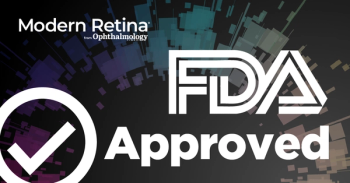
Eyecare providers report slower Q3 and increased concern for the US economy and inflation rates
The Vision Council’s Q3 Provider Insights study shows the sentiments of eye care providers nationwide as they manage practices and patient care.
The Vision Council has released the results of their Provider InSights research study for Q3 2023. This study explores the sentiments of eyecare providers in relation to the daily operations of their practices, the eyecare industry, and the American economy and was conducted in October and November of 2023. Those surveyed include opticians, optometrists, ophthalmologists, eyecare practice managers, eyecare practice owners and other professionals.1
The findings of the Q3 edition of the study show that eyecare providers in all the groups listed above feel that the outlook on the US economy has worsened since Q2 of 2023 and they are less confident about meeting their revenue goals for the year.1
In the press release1, Alysse Henkel, Senior Director of Market Research and Analytics at The Vision Council, noted that the impacts being felt by providers are also being felt by patients, saying, “Our latest findings from Q3 demonstrate that economic challenges continue to be a top concern for eyecare providers across the country, with responses showing that inflation is having the greatest effect on wholesale prices of eyewear and practice supplies. These impacts are reaching consumers—providers reported that patients continue to be price-sensitive when choosing eyewear and are becoming more price-sensitive about exams as well.”
The report also notes a few key points that are affecting providers as they manage their businesses:
- Compared to Q1 and Q2, eyecare providers are less confident that they can meet their revenue goals.
- Hiring remains the biggest challenge for eyecare providers in Q3.
- Most providers expect staffing levels at their practices to remain the same in 2023.
- Inflation challenges seen in Q1 and Q2 did not change significantly in Q3. Most eyecare providers said they increased prices for eyewear due to corresponding wholesale price increases.
- Optometrists who treat childhood myopia report that parental and/or patient compliance with treatment and cost of treatment are the two biggest challenges in treating myopia successfully.1
In summary, this study sees that eyecare providers reported a less successful Q3 compared to Q1 and Q2, yet they maintain a positive outlook for the rest of 2023.
About the inSights Research Program
The Vision Council’s
Reference
Inflation and staffing remain top concerns of eyecare providers according to the vision council’s Q3 provider insights research report. The Vision Council. November 28, 2023. Accessed Novermber 28, 2023.
Newsletter
Keep your retina practice on the forefront—subscribe for expert analysis and emerging trends in retinal disease management.




























